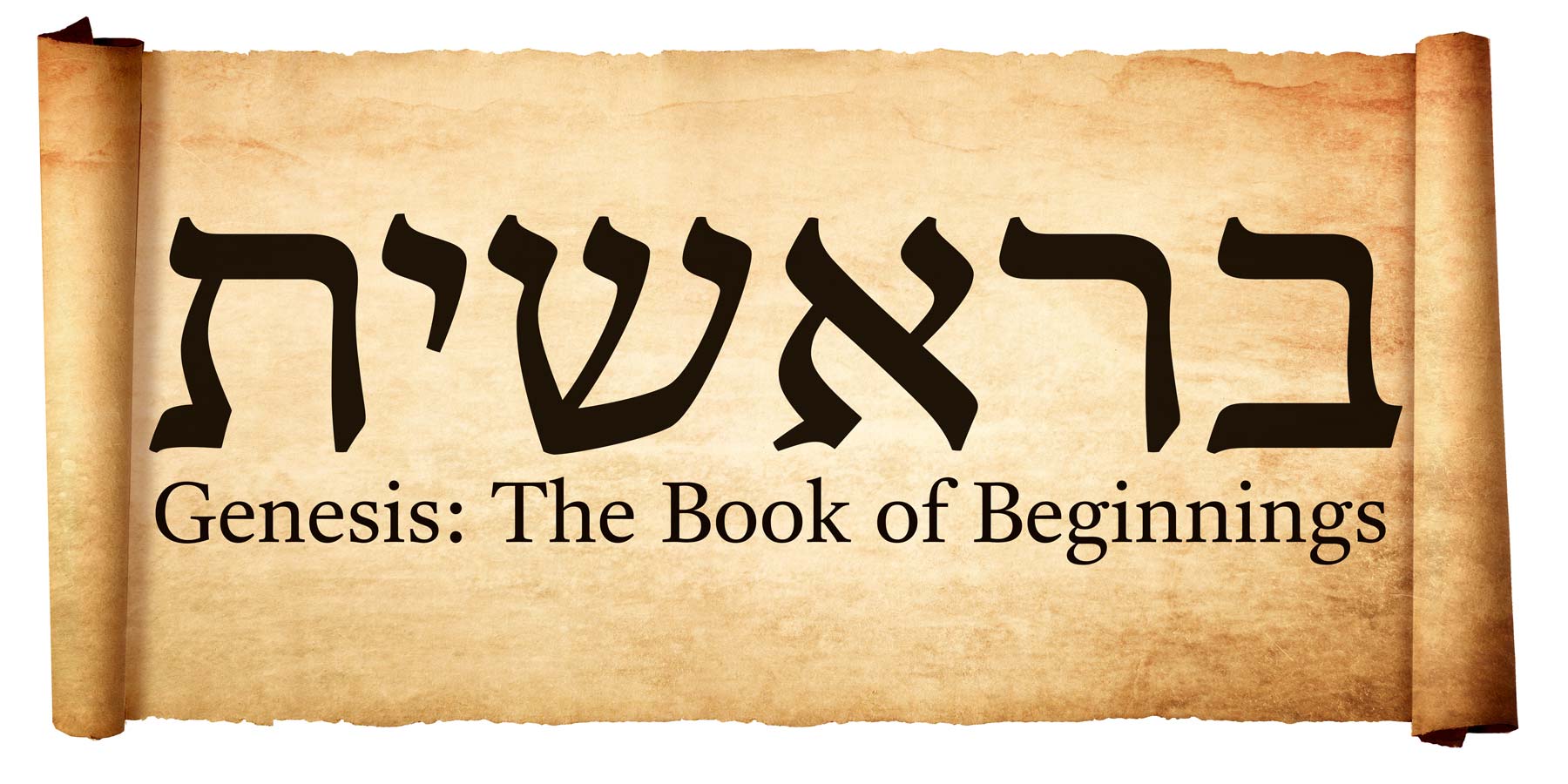Genesis Lesson 17 | 17:1–17:27
Prayerfully read Genesis 17 at least two times and then read the following notes.
Context: Setting the Table
Following a magnificent creational prologue, the book of Genesis divides into two unequal halves of five sections each. The first half of the book (2:4–11:26) deals with the history of humanity as a whole, from its creation to the birth of Abram. The second half of the book (11:27–50:26) focuses on the history of the patriarchs. In this sixth installment of the story of Abram, God confirms his covenant with Abram, enlarges his name and gives him the sign of circumcision.
Content: Reading the Text
(17:1–8) Abraham Will Father Nations and Kings
(17:1a) It was now twenty-four years since Abram had gone out in faith in obedience to the command of the Lord. Yet though Abram finally had the son he had craved for so long, the means he had used to get that son fell far short of the perfect standards God’s covenant demanded. “Just as the covenant making in chapter 15 came in response to the events preceding in chapter 14, so the covenant confirmation in chapter 17 comes in response to the events in chapter 16, where Sarai and Abram seek descendants through Hagar.”1
(17:1b) “Almighty God” translates the divine name El Shaddai—the first use of this name in Scripture. While its precise etymology remains elusive, the context of its various uses throughout the Old Testament shows that it is intended to convey “the majesty and power of the divine person.”2 “Almighty God” well captures this meaning.
(17:2a) The word here translated as “make” is not the same Hebrew word translated as “made” in Genesis 15:18. While the word used in 15:18 refers to the initial establishment, or “cutting” of the covenant, the word used in 17:2 refers to the confirmation of a previously existing covenant. This distinction in usage is consistently borne out in the remainder of the Old Testament.
(17:2b) “Genesis 15 and Genesis 17 correlate respectively with the first three promises and the second three promises of 12:1–3. Abraham has shown a great deal of interest in God’s promises to bless him personally with fame and nationhood, but these promises are foundational to the second three promises to bless all the nations through Abram, and Abraham has not shown any interest in being a blessing to the nations.”3 While Ishmael might have satisfied Abram, God’s purposes in calling him to begin with were always bigger than Abram’s personal happiness.
(17:5) The “ham” in Abraham sounds like the first part of the word translated as “many” or “multitude” in 17:4. Yet there is more here. In 12:2, God had promised to make Abram’s name “great” a word which carries the nuances of enlargement and growth. In expanding Abram’s name, God has quite literally made it “greater” than it was before.
(17:6a) “[W]hereas Adam and Noah were simply commanded ‘be fruitful,’ God makes Abraham a promise, ‘I shall make you fruitful.’ This change…suggests that Abraham will be given divine power to achieve this fertility, whereas his predecessors, left simply to themselves, failed.”4
(17:6b) While Abraham was indeed to become the physical ancestor of a number of nations, including the Ishmaelites and Edomites as well as the Israelites, the New Testament (Romans 4:17–18 among other passages) makes it clear that these earthly nations do not represent the ultimate fulfillment of this promise. “Abram therefore was not called the father of many nations, because his seed was to be divided into many nations; but rather, because many nations were to be gathered together unto him.”5 It is impossible to rightly understand the big story of Scripture if we do not recognize that we are intended to see Revelation 5:9 as a direct fulfillment of God’s promises to Abraham.
(17:7) As Paul makes clear (Galatians 3:16), Christ is ultimately the seed to whom these promises were made. When the Spirit places us “in Christ,” we too become “Abraham’s seed, and heirs according to the promise.” (Galatians 3:29)
(17:8) As we find in Romans 4:13, this promise of the land ultimately refers, not to the land of Canaan alone but to the whole world. We, like Abraham, are “strangers” or “sojourners” in the land which we have been promised as our inheritance (1 Peter 2:11, Matthew 5:5), the earth which will one day be delivered from the corruption under which it now groans (Romans 8:22). Yet while we must, as did Abram, “walk through the land in the length of it and in the breadth of it,” (Genesis 13:17), taking dominion over the inheritance we have been given, we must never forget that we live our lives in this present age as “strangers and pilgrims” (1 Peter 2:11), awaiting, as did Abraham, the descent of the city “whose builder and maker is God.” (Hebrews 11:10; Revelation 21:2)
(17:9–14) The Sign of Circumcision
(17:9) While God’s covenant with Abraham was a gracious gift, it, like all the covenants that preceded and followed it, still demanded an obedient response. What makes what we have in Christ so radically new is not that God first began to be gracious in the New Testament, nor that he changed his mind about the need for an obedient response, but rather that the incarnation of Christ enabled him to perfectly fulfill the demand of the covenant for an obedient human son, unleashing covenant blessings on all who are his.
(17:10) While circumcision was widespread in the ancient world, the Egyptian practice provides the most significant background for our understanding of God’s command to Abraham. “Egyptian circumcision functioned as a specific, voluntary, and initiatory rite to identify and affiliate the subject with the deity and to signify devotion to the same deity…[Israelite] circumcision functions as a sign of remembrance to Abraham and his offspring that they are affiliated with Yahweh or devoted to him, just as the king-priest and his clergy in Egypt were specially devoted to the deity…only the priests were obligated to be circumcised in Egypt, but in Israel every male was to be circumcised on the eighth day (Genesis 17:12).…As a kingdom of priests (Exodus 19:6), circumcision is the appropriate sign for the people of Israel, for it will remind every male Israelite that he is a priest, specially consecrated to Yahweh and his service.”6
(17:15–22) Sarai Will Mother Nations and Kings
(17:15) There is no difference in meaning between Sarai and Sarah—they are simply alternative spellings of “princess.” However, this change in spelling involves the addition of the very same letter that was added to Abram’s name—thus making her name “great” as well!
(17:16) This is first time that God has explicitly promised that the seed of promise will come through Sarah.
(17:17) The word translated as “laugh” is identical in Hebrew with the name “Isaac.” “Much like Moses later on, Abraham believes that his circumstances limit the promises of God. God is ignoring some fundamental problems that in fact make his promises stillborn.”7 Nevertheless, though Abraham’s laughter did reflect a certain amount of incredulity it was not the result of scornful unbelief for it was immediately followed by prompt obedience (Genesis 17:23) driven by faith (Roman 4:19–21).
(17:20) As Ishmael’s name means “God hears,” this is a striking play on words. As God heard the afflicted cry of Hagar, so now too he hears the conflicted request of Abraham. Though Ishmael is not the covenant seed, he too will receive a blessing.
(17:23–27) The Sign of Circumcision Is Carried Out
(17:23) Despite the pain and difficulty of undergoing circumcision at an advanced age without anesthetics or pain medication, Abraham obeyed God immediately and fully. It is important to note that circumcision, as practiced in Israel, was not “about establishing racial purity, since males who are not Abraham’s offspring are included. Nor is it about social status, [since] no distinction is drawn between those born in Abraham’s household and those bought with money.”8
Credo: Believing the Truth
After so many years of waiting, Hagar the Egyptian had given to Abram the son he craved. Yet God was harder to satisfy than Abram. His redemptive purposes could not be accomplished by the turbulent comfort that Abram seemed willing to settle for. After more than thirteen years of silence, God appeared to Abram once more. He renewed his covenant and expanded his promises. By enlarging the names of both Abraham and Sarah and commanding the sign of circumcision, he provided a doubly permanent reminder that the fulfillment of God’s purposes for Abraham and his seed demanded nothing less than the limitless power of God.
Conduct: Reshaping Our Walk
Discuss the meaning of the text and then walk through the following application questions as you discuss the difference this meaning ought to make in our lives today.
How might we be tempted to forget that we are only “sojourners” in the earth, awaiting the day when the meek will inherit the earth?
Examples: Setting our hearts on political “victories” of value only in this present age; Giving more attention to the treasures of this earth than to the in-breaking kingdom of God and his righteousness.
What are some of the ways in which we could be tempted to believe that our circumstances limit the power of God?
Examples: Believing that our past failures make present and future obedience impossible; Allowing the current cultural climate to dampen our zeal for evangelism.
Endnotes
1. Gentry & Wellum, 2012, 259
2. Mathews 2005, 201
3. Gentry & Wellum, 2012, 268
4. Wenham 1994, 22, slightly modified
5. Calvin 1847, 447
6. Meade 2016, 45–48
7. Hamilton 1990, 477
8. Alexander 2008, 80




